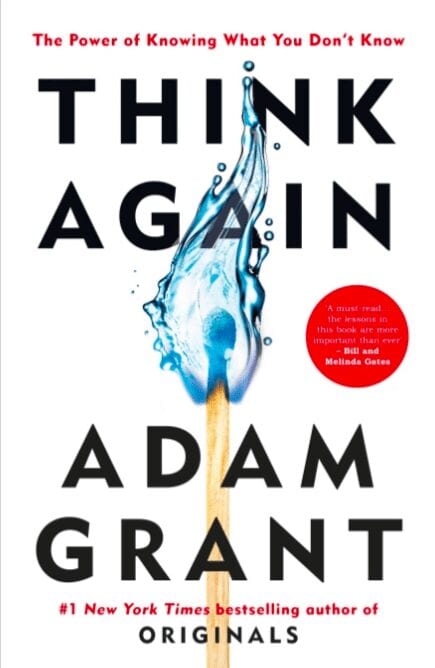Title: Think Again
Author: Adam Grant, PhD
Publisher: Viking (2020)
Reviewer: Ken Howard
This post is part of our occasional series, FaithX Book Reviews.
If you know a book you’d like us to review on our blog (or if you’d like to review one for us), please let us know by contacting Ken Howard at ken@faithx.net
Pride goes before destruction,
and a haughty spirit before a fall.
Proverbs 16:18
At FaithX, much of what we do is helping leaders of congregations, judicatories, and denominations break through their own biases in order to see things about the communities they serve that they otherwise could not see. So it was with great interest that we picked up Adam Grant’s newest book, Think Again.
Grant is a psychologist, author, and professor (Wharton School, University of Pennsylvania) specializing in organizational psychology. In a previous book, Give and Take: Why Helping Others Drives Our Success, he explored how how different kinds of leadership personalities (Givers, Takers, and Quid-pro-quo-ers) affect organizational climate and the likelihood of success (or lake thereof) in organizations (spoiler alert: a single taker at the top can badly damage an organization). [click here for related FaithX blog post]
Think Again explores the hypothesis that leaders biggest strengths can also be their Achilles heel. The smarter people are, the more likely they are to outsmart themselves, because their confidence in their own thoughtfulness keeps them from questioning their own assumptions, and instead becomes a “weapon against the truth.” He provides examples of this paradoxical tendency from a variety of different fields and industries where innovative thinkers’ early successes created a kind of hubris that ultimately renders them incapable of responding to new conditions that would require them to adjust their original thinking, impeding future success.
Grant does not suggest that we abandon our confidence in our thinking. Rather, he suggests that we leaven our confidence with a little humility, and that this confident humility (humble confidence?) can take us further than either confidence or humility can take us separately, and that we should think less like preachers and more like scientists.
Of course, even scientists can fall prey to this kind of paradigmatic hubris. In 1962, in The Structure of Scientific Revolutions, Thomas Kuhn shared research that showed that even scientists’ confidence in the dominant scientific paradigm often literally rendered them blind to data that contradict it. And in 2010 I wrote about how it feeds into pernicious theological divisions in Paradoxy: Creating Christian Community Beyond Us and Them.
Adam Grant simply makes it relevant for readers in 2021.


